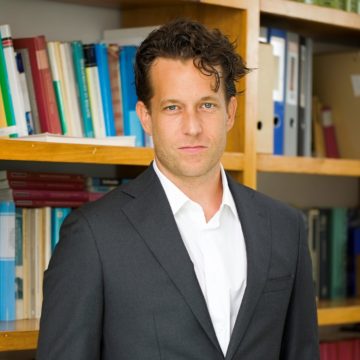When in Rome, do as the Romans do.
When in Rome, do as the Romans do.
July 26, 2023
Bankruptcy practice can be unruly. The bankruptcy receiver has to deal with parties that are often in financial competition with each other. Creditors such as employees, the Tax Authorities, the bank, and other (unsecured) creditors all want to get what they believe they are entitled to. It is up to the bankruptcy receiver to determine who is entitled to what and to liquidate the assets of the estate with the highest possible proceeds. The proceeds of the bankrupt’s estate shall then be distributed in proportion to the seize of their claims, insofar there are sufficient funds.
A bankruptcy receiver performs his duties primarily in the interests of the joint creditors, but they must also consider other (general) interests such as the retention of employment, environmental protection and the like.
Sometimes a party appears on the scene with an interest that conflicts with that of the estate and the receiver must act to protect the estate. In the bankruptcy of BOPEC, the oil terminal on Bonaire, it turned out that a creditor of PDVSA had levied attachments on the contents of one of the storage tanks. The oil was not owned by BOPEC and was therefore not part of the estate. However, the bankruptcy receiver did have the control over the oil and exercised a right of retention thereon for the benefit of BOPEC’s creditors. In addition, the oil could not actually be discharged into a receiving vessel because of the ‘locked’ status of this storage tank and a number of permit restrictions imposed by the (Dutch) inspection authorities (the Human Environment and Transport, ILT and Water Management (Rijkswaterstaat).
Nonetheless, the creditor pushed through with the public auction. Before the auction took place, the bankruptcy receiver made these (legal and technical) obstacles known to the executor, the bailiff and the potential bidders known to him, and also informed them that any acquirer at the auction would be liable for the monthly storage costs of USD 260,000 for the oil.
The winner of the auction was an oil trader from Dubai. During the auction, he confirmed with a (silent) head nod that he understood that the bankruptcy receiver would maintain the retention on the oil and would invoice the new owner on a monthly base for the storage fees.
Once the oil was awarded to the buyer, it soon became clear that the new owner did not want to pay for the (up)running storage fees, nor did he acknowledged the estate’s right of retention. This led to several legal proceedings between the bankruptcy receiver and the buyer. Against the receiver’s argument that he had nodded affirmatively during the auction when the topic of storage costs was raised, he argued that that means something different in Dubai than in Bonaire.
Recently, the Joint Court of Justice ruled in favor of the bankruptcy receiver and ordered the buyer to pay the storage fees that had accumulated to nearly $ 5,000,000 due from the time of the allotment at auction, and to tolerate the bankruptcy receiver seizing the oil and selling it in satisfaction of the estate’s (historic) storage claim.
As to the buyer’s acceptance of the custody fee, the Court was clear:
“The bankruptcy receiver made it clear before and during the foreclosure auction that he wanted to maintain the existing level of wages. X did not object to this. On the contrary, X nodded during the auction. At the hearing, X argued that he lives in Dubai and that a nod means nothing. However, things are different in Bonaire and, as an international businessman, X should know that. In Bonaire, parties can make their will known to each other by any means: in language or signs, orally or in writing, directly or through third parties, by mechanical devices, gestures, attitude, or actions, or under some circumstances even by a non-action.“
In short, when in Rome, do as the Romans do. Even if the case would be that in Dubai a nod of the head would mean nothing (or something else), in Bonaire it simply means “yes”. The Court had no sympathy for the buyer’s twist and applied the custom of the land, ruling in the interest of the estate (and not in the least: that of the joint creditors).
Stan van Liere is the court-appointed receiver in the bankruptcy of BOPEC, Lucas Drissen is assisting him as an attorney.

